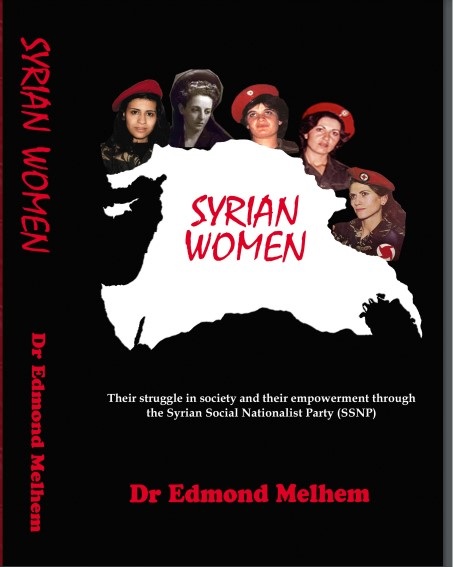In his speech on June 1, 1935, Sa'adeh clearly articulated his party’s fundamental strategy and objective. He defined his party as "an idea and a movement concerned with the life of a nation in its entirety."[1] By this, Sa'adeh emphasized that the party's focus extends beyond any specific segment of society—be it religious, familial, or class-based. Instead, it represents the Syrian nation, aiming to unify its diverse elements into a cohesive whole, as reflected in its goals and principles, which address all Syrians equally.
Sa'adeh further explained, "In this important work, we shall encounter many internal and external difficulties, which we must overcome. We must begin with the internal challenges because we cannot fully address the external ones until we have conquered the internal obstacles."[2] Among these internal difficulties, he identified "decadent beliefs" and "conflicting traditions," which hinder national unity. Adel Beshara described Syria at that time as a society bound by an outdated belief system characterized by confessionalism, clannism, tribalism, and other forms of primordial loyalty, all rooted in a doctrine derived from various conflicting sources. This doctrine had left Syrian society stagnant until exposure to Western ideas in the 19th century, which, unfortunately, only added to the confusion.[3]
Sa'adeh sought to eradicate the social ills, corrupt principles, and chaos that contributed to his people's distressing condition. "We are a movement that is on the offensive; we are a movement that has introduced new teachings with which it attacks the evil and chaos that are responsible for the people's present sorrowful state,"[4] he declared. His goal was to overcome the prevailing ignorance and destructive beliefs and to improve the lives of both men and women by addressing their social, political, and economic conditions. Sa'adeh saw both men and women as victims of the current situation in his nation, suffering from the same social, legal, and political injustices. The prevalent cultures of ignorance, backwardness, fragmentation, and decadent beliefs affected not just one group, but the entire society. To change this status quo and solve these problems, Sa'adeh advocated for adopting a new culture or indigenous outlook, and a new system that would lead the people toward progress.
Thus, Sa'adeh proclaimed: "The Syrian Social Nationalist Party has found a means of overcoming these difficulties through its system (nizam), which breaks down both the traditions that oppose the unity of the nation and individual psychologies that oppose the psychological individuality of the nation."[5]
Unlike Qassim Amin, Sa'adeh was not merely a proponent of women's emancipation. He was a national reformer, concerned with the cause of the entire nation and its liberation from external and internal threats. He envisioned the individual, whether male or female, being freed from traditional constraints and achieving liberty and self-realization through the nation, specifically within an open and integrated society—one that strives for knowledge, justice, freedom, and peace while opposing oppression and injustice.[6] Sa'adeh's solution did not isolate women; instead, it targeted the whole society and aimed for national integration and the general welfare of all its members. His vision was to free the nation from colonialism, establish a secular, modern, and democratic state devoid of racism, exclusion, oppression, and discrimination, and transform the social, economic, and political life of his people.
Sa'adeh often reiterated that principles exist to serve the people, assist society, and improve its quality of life.[7] He emphasized his goal was to "cater to the interests of his people"[8] and "to work for the public good within a peaceful and free context"[9] because "life and its beauty, goodness, and loveliness are the ultimate end."[10] Therefore, it can be confidently stated that the Syrian Social Nationalist Party (SSNP) is an agent of change, aiming to foster a sense of self-confidence and national consciousness through its doctrine, essential for the complete crystallization of the nation and leading to its national renaissance. This renaissance seeks to enhance the lives of all Syrians and advance the welfare and modernization of their society.
[1]Antun Sa´adeh, Al-Muhadarat al-’Ashr, op. cit., p. 30.
[2]Ibid., p. 31.
[3] Adel Beshara (ed.), The Origins of Syrian Nationhood, op. cit., p. 357.
[4]Antun Sa´adeh, Al-Muhadarat al-’Ashr, op. cit., p. 24.
[5]Ibid., p. 31.
[6]See Safia A. Sa´adeh, “Sa´adeh and National Democracy”, in Adel Beshara (ed.), Antun Sa´adeh: The Man, His Thought – An Anthology, op. cit., p. 533.
[7]Antun Sa´adeh, Al-Muhadarat al-’Ashr, op. cit., pp. 37 – 38.
[8]Antun Sa´adeh, Al-Athar al-Kamilah - 1938 (Complete Works), vol. 4, Beirut: Fikr, 1980, p. 38.
[9]Antun Sa´adeh, Al-Athar al-Kamilah (Complete Works), vol. 1 (1921 – 1931), Beirut: SSNP Information Bureau, 2nd edition, 1982, p. 342.
[10]Antun Sa´adeh, Al-Muhadarat al-’Ashr, op. cit., p. 173.

